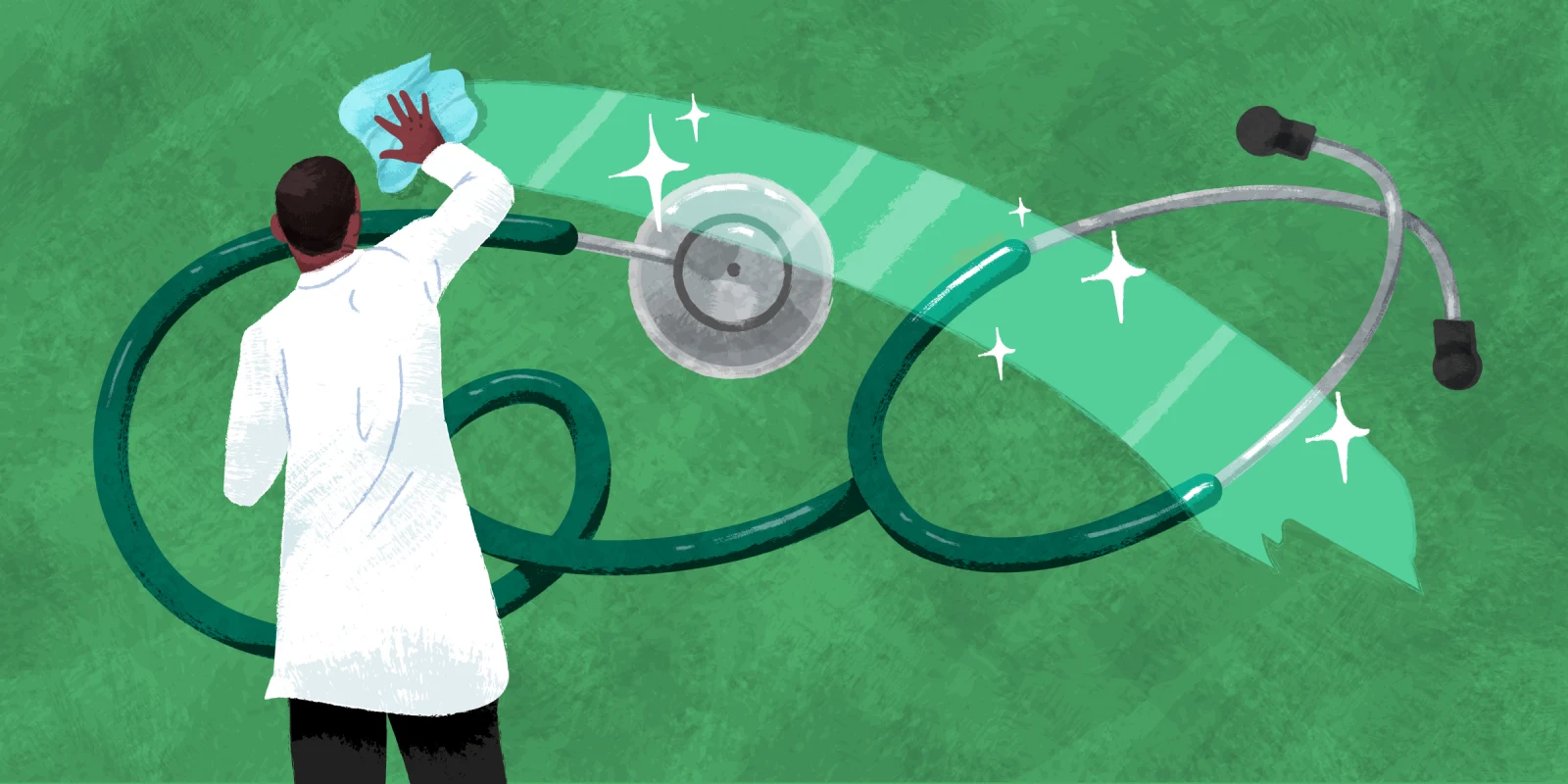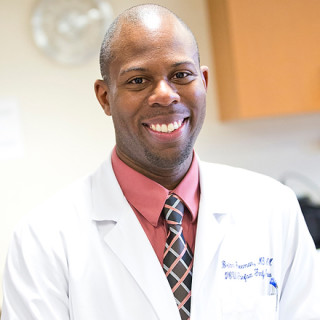We all work very hard to become doctors. But why? I’ve been trying to figure out the answer to this question for some time now.
I went to a pre-engineering high school as part of their first graduating class. During my freshman year, we went on a field trip to a biomedical engineering symposium at a local state college. It was the first time I heard about bioengineering food and tissue engineering. I felt transformed that day, like I had found what I wanted to pursue as a career.
As I became exposed to laboratory medicine during my sophomore and junior years in high school, I felt in trouble — I didn’t like working on “ELISA” assays or spending my days with test tubes. There were few, if any, other people around. I recognized I needed human interaction, but to still be involved in the science that excited me. Thus I began my quest to become a doctor. It made sense because medicine was a way to help those like my grandparents, who long suffered from common chronic diseases such as diabetes, heart disease, kidney disease, or lung disease. It was a way to live well by doing good. Lastly, I believed I would be a pillar in my community.
I studied biomedical engineering in college, almost certainly because of my experience in high school. It takes a minimum of 11 years of schooling post-high school to become an attending physician. Most of my years post-high school were spent alone, at night, in libraries and hospitals, intensely hoping all of my delayed gratification would pay off at some point. I can distinctly remember a night during my junior year of college when my girlfriend and a couple of friends went to a party I had been looking forward to for a couple of weeks. They left me at home, stumped over a bio-informatics model I’d been working on for the last week. The solution came to me an hour before they all returned, intoxicated from alcohol and the fun they just had. As for me, I had no fun, but I did receive an A on my project.
After all of this sacrifice, I found myself questioning my decision to pursue medicine. For at least two years, I’ve had this brooding uneasiness, feeling that my work was unsatisfying. A conversation with a physician colleague helped me clarify. We had very similar backgrounds: both of us grew up in middle-class neighborhoods with working parents. No doctors in our families. We both excelled in school and knew we could make something of ourselves by going into medicine. We thought once we made it past residency our life would be easier — we’d make good money, be immediately respected by everyone we met, and have ultimate autonomy in our labor.
I guess you could call my friend and I naive to believe being an attending would be perfect. But the truth is, being an attending is a lot like many other jobs — most days are good, but some days could be better. We have to accept that some things are how they are going to be, and some things we have influence in changing.
But we didn’t sacrifice our entire 20s for "just another job." We sacrificed to become doctors — the powerful and awesome idea of being a physician. Now that we are physicians, we realize that we are no more awesome than the next person.
That realization was devastating.
We were so conditioned to think about the future, putting one foot after the next in hopes of a better tomorrow, it’s defeating to not have anything to look forward to. I believe this was the genesis of my uneasiness. I have to live and practice in the present. Part of that is accepting the reality that practicing medicine is not what I thought it would be. Being able to order tests and prescribe medicines only goes so far in helping people. We have become cogs in the ever-complex and corporate health care machine, with less and less influence within the systems we work in.
I am learning how to live in the present, and recognizing and being grateful for the person I have become, not just the title I have earned. I had to change my perspective and find meaning in my clinical interactions as they were, not as I thought they should be. One of the most satisfying aspects of doctoring to me is building deep and lasting relationships with patients. It is very difficult to do so in the 15-minute office visit or the 5-minute hospital visit.
Over the last year, I’ve found I can develop meaningful relationships with patients during a single hospital admission, or a single visit. Instead of lamenting how frustrating it is not being able to directly intervene on a patient’s social determinants of health, I can focus on mastery of my medical skills and optimizing the patient’s diagnosis and medical treatment plans. Rather than sulking about my place on the clinician/administrator hierarchy, I can relish turning off my pager in the evenings and spend relaxed, uninterrupted time with my children.
So what keeps me in medicine? I’m beginning to appreciate the opportunity to impact people on a personal level through our presence. The more medicine I learn, the more enjoyable practicing becomes, despite the hassles. Though physicians are losing autonomy, we are still rewarded with patient appreciation for our services and our time. In short, I’m starting to accept my role within the health care system, and learning how I can make an impact based in reality and not the lofty thoughts from the past. My mindset has evolved, and it’s that evolution that keeps me motivated to practice. I’m grateful for that.
Why did you go into medicine? Compare it to why you stay in medicine in the comments.
Dr. Freeman is a family physician and hospitalist with the Hospitalist Associates of Virginia, as well as a physician at Pathways Residential Treatment Center. He graduated from the University of Louisville School of Medicine and completed a residency in family medicine at VCU/Fairfax Family Practice. Prior to joining the hospitalist group, he was the Director of Adult and Family Medicine at Johnson Health Center and a National Health Service Corp Scholar. His interests include addiction medicine, primary care management of mental health disorders, and patient and family communication. Outside of work he enjoys spending time with his wife and three children, as well as real estate investing. He is a 2020–2021 Doximity Op-Med Fellow.
Illustration by Diana Connolly







